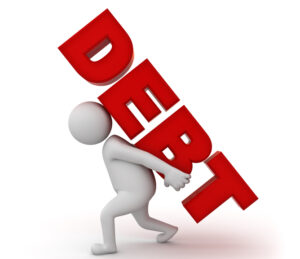In the last part today John Lowe of MoneyDoctors.ie looks at all other consumer credit facilities. I particularly like a certain Yiddish proverb…interest on debts grow without rain…
And it is about the ever-growing interest bill on debt that I wish to address. There are three types of unsecured credit outside of property credit available –
Personal loans – you may also have car loans, furniture or home improvement loans or overdrafts. The Sniper Approach – this is where you pay off the most expensive debt first… if you can. Some of these personal loans can attract interest rates over 18%. The greater the risk, the higher the interest rate.
Overdrafts ..hugely expensive – personal overdraft interest rates start at c.13%. Secondly the set up charges, referral fees, unpaid fees, surcharges (an additional amount of interest – could be 1% per month – chargeable if you exceed the overdraft limit without permission) are simply not worth it. Managing without an overdraft is the ideal. Remember also the requirement for overdrafts is that they must be in credit for 30 days each year.
Credit cards – so you have “maxed out” your credit card/s, where you have used the full credit limits on your cards. What are your options ? Paying 2% of the balance each month effectively will create a 20 year loan for you based on the high credit card interest rates. If your credit rating is good enough however and you are still in satisfactory employment, then you could switch to one of the 4 credit cards that offer 0% on transferring you balance over to them. Best of them is An Post Money for a whopping 12 months. Gives you time at least.
Overdrafts and credit cards are by far the most expensive borrowing, so it makes no sense to use these to bridge the gap between income and expenditure.
You should establish your priorities in terms of debts and look at all your options. If you have an asset you can dispose of in order to reduce your borrowings, such as
- a holiday home you rarely use
- or even a second family car
you should be prepared to swallow your pride and make the hard decision. It may not be conducive to sell, either inability to sell or not attaining the right price. Your option here is to negotiate with the lender in the first instance. Deferring any further borrowings until your finances are back on an even keel is of course essential.
If you are sitting on any substantial level of savings it would make sense to use some of them to pay off your most expensive borrowings, particularly credit cards or personal loans. Also no point in paying a credit union loan when you have far in excess of members’ shares / savings than the total loan outstanding. If you are making monthly payments to a savings plan and you have sufficient Rainy Day Funds, you should consider suspending the plan for a period and diverting the payment in reduction of your debts in order of the one that is hurting you the most..
If your mortgage is sufficiently low and you have good equity in your home, you may be able to convince your mortgage lender to let you top-up the mortgage over its remaining term especially for any capital outlay – extension, attic conversion, conservatory, new kitchen etc. This makes sense if your savings are depleted, you have sufficient income to meet the new loan repayments and you simply want to upgrade your home.
There you are – all sorted. Now all you have to do is change.

